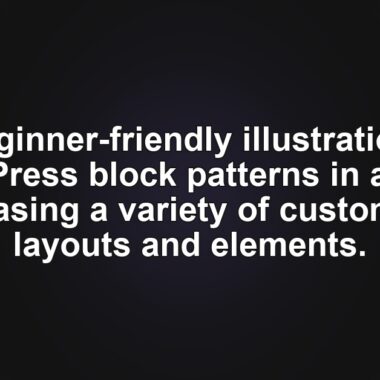![]()
Mobile Web Development: Important Factors, Tools, and Optimization
More than half of global web traffic comes from mobile devices. Hence, developing a mobile-friendly site or web application is crucial to strengthen your online presence.
In this article, you will learn about mobile web development. We will explain important factors in mobile development and its best tools. You will also learn about optimization methods to improve your site or app’s performance.
What to Consider When Developing for Mobile Devices
Mobile APIs
Application Programming Interface (API) is software that allows communication between multiple programs to exchange data. Web developers use it to improve an app or website’s functionality. APIs let you implement mobile-specific features like geolocation and orientation on your website. These features aren’t supported on a desktop computer.
When installing APIs on your site, always check their compatibility with desktop computers and mobile devices. Otherwise, your site may run into errors and become inaccessible.
Touch Screens
Most mobile device users use touch screens to interact with your website or app. They have hardware limitations that prevent users from using some desktop functionalities.
To ensure your website or application is user-friendly for touch screen devices, consider the following factors:
- Element size and placement.
- Screen size.
- Gestures.
Cross-Browser Development
Your website may not work correctly across different mobile browsers. This is due to the browser’s compatibility issues or inconsistent HTML and CSS code execution.
For mobile applications, the compatibility requirements depend on their type: web apps, native apps, or hybrid apps. Use a cross-platform framework such as Flutter for mobile app development.
How to Optimize a Mobile Web Application
Image Optimization
Unoptimized images can significantly slow down your website. Optimize your images to reduce their file size while maintaining quality. Consider file format, compression, the number of images, dimension, and caching.
Code Compression
Code compression or minification is a method to simplify code and reduce its file size without affecting its functionality. Use minification tools for HTML, CSS, and JavaScript. Also, install GZIP compression on your website.
Content Delivery Network
Use a content delivery network (CDN) service to speed up your site. A CDN stores copies of your website data on multiple servers worldwide. Choose a CDN service with mobile optimization features like Cloudflare.
Database Queries
Minimize database queries and enable database caching to speed up your site. Database queries are requests to fetch or modify the data stored in the database.
How to Test and Debug Mobile Web Apps
Conduct testing throughout the mobile app development process to ensure it works properly. Use a development environment tool with an emulation feature or a browser-based development tool like Google Chrome’s DevTools. Check your app or site’s cross-browser compatibility with online tools such as Browserstack.
Mobile App Development Tools
Having a tool with the right features helps improve your mobile app development process. Consider Flutter, Chrome DevTools, Visual Studio Code, GitHub, and Hostinger Website Builder.
What to Consider for Mobile Web Development
Functionality
Adjust your site’s functionality to mobile devices’ capability. Leverage mobile-specific features to help users with their desired actions.
Multiple Designs
Use responsive design or create a separate mobile version of your website or app. Make sure your design works on any screen size.
Page Behavior on Desktop vs Mobile
Understand how your website or app loads differently on desktop and mobile. Divide your desktop website into smaller pages to speed up loading.
UX Differences
Consider navigation and content presentation for mobile users. Make navigation menus easily noticeable and prioritize content on the landing page. Use a visual hierarchy and adjust text size for better readability.
Conclusion
As more people use phones to access the internet, having a mobile version of your site or web app is necessary. Given their differences with desktops, consider important factors when developing for mobile devices. Optimize your website and app to keep their performance consistent across multiple platforms. Divide your mobile site into smaller pages and create mobile-friendly user interfaces to improve usability.
If you have any questions about mobile web development, leave a comment below. Good luck!
Mobile Web Development FAQ
What Is the Difference Between a Mobile Web App, a Native App, and a Hybrid App? Should You Create a Separate Mobile Website?
👉
Start your website with Hostinger – get fast, secure hosting here 👈
🔗 Read more from MinimaDesk:
- WooCommerce vs BigCommerce: A Comprehensive Comparison for WordPress Users
- How to Add Title Attributes to WordPress Navigation Menus
- The Ultimate Guide to Content Management Systems for WordPress Users
- Understanding Core Web Vitals: A Comprehensive Guide for WordPress Users
🎁 Download free premium WordPress tools from our Starter Tools page.








